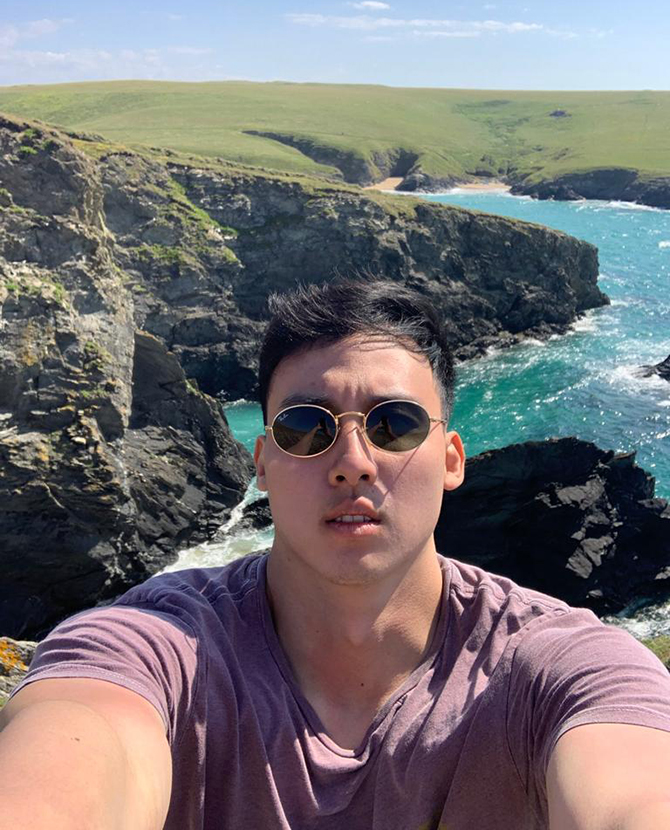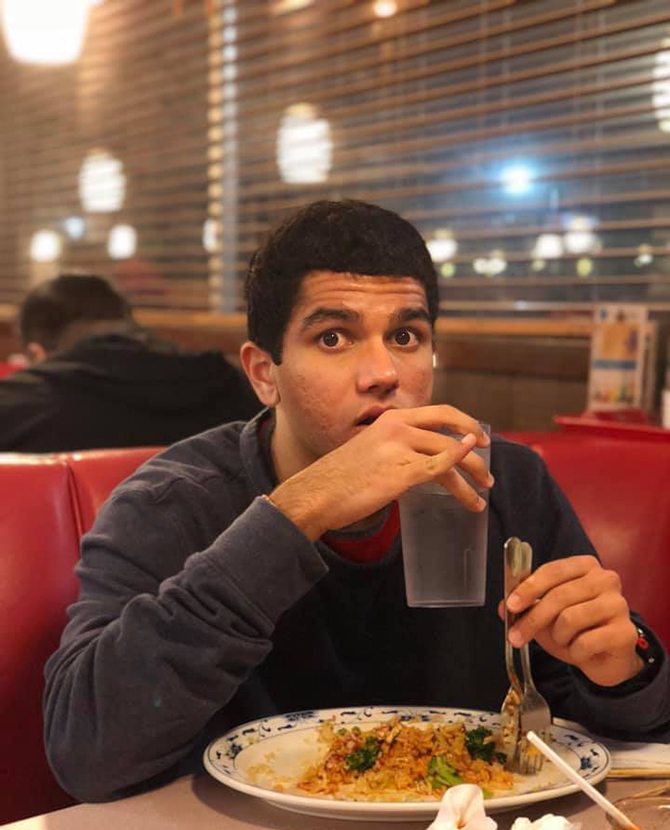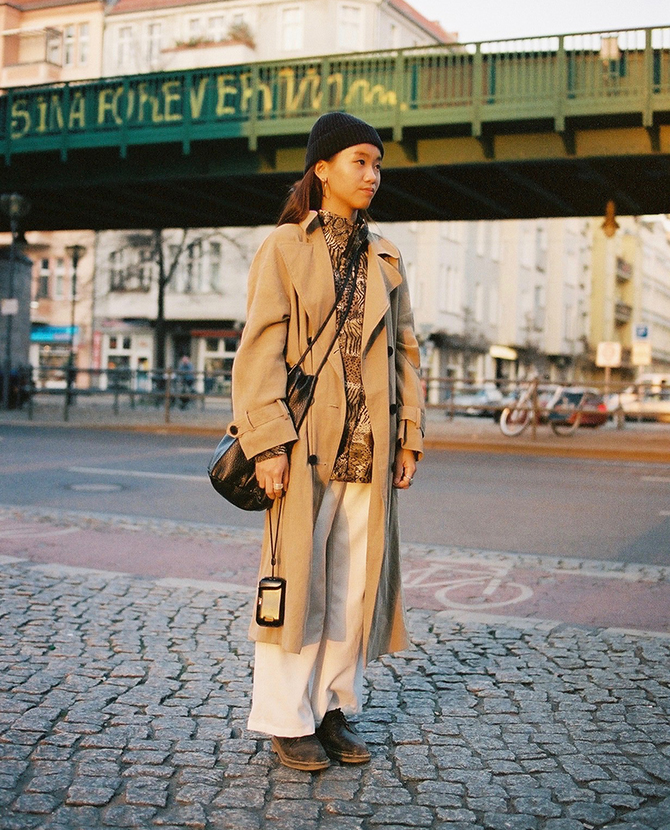
The seemingly simple question of “Where are you from?” might be more complex than you think, especially for a third culture kid (TCK). According to US sociologist Ruth Hill Useem who coined the term, third culture kids are children who were raised in a culture other than their parents’ own, during a significant part of their child development years. However, this definition is still highly ambiguous. Can TCKs include children that live in their native land but have been raised in an international community? What about biracial children who have lived in both of their parents’ homelands?
While the term “TCK” isn’t widely known, third culture kids are more ubiquitous than it seems. The 44th US president, Barack Obama, was born to a Kenyan father and an American mother; he spent four years of his childhood living in Jakarta. The late Kobe Bryant grew up in Reiti, Italy, until the age of 14. Although this nomadic lifestyle might seem appealing, many TCKs struggle with a sense of identity and belonging as a result of constant relocation.
To fully understand what it means to be a third culture kid, we talk to Christian Ng, Atul Subramanian, and Warisara Burns about their cross-cultural experiences.
Christian Ng

Where are you from?
“Singapore”
Where have you lived in the past and where are you currently living?
“I was born in Singapore and lived there till the age of seven. After that, my family moved to Australia for six years before we ended back in Singapore. Currently, I’m living and working in London.”
What’s a question that you always get asked?
“A common question I would get in the UK is ‘Why is your English so good?’ When I’m back in Singapore, people will ask questions like ‘You’re not from Singapore, right? Your angmo dam* good.'”
Do you feel in touch with your culture?
“Yes. I am proud of Singaporean culture and think it is far more interesting in comparison to British or Australian culture. I identify with being Singaporean and feel that my identity is primarily a Singaporean one. Serving in the Singapore Armed Forces (SAF) for two years probably had a large part to play in this.”
What are some assumptions people make about you being a TCK?
“(People assume) I come from a wealthy and privileged background/family; I am not really Singaporean; and I am a ‘white Asian’—I find this one particularly offensive because I do not wish at all to shed my Asian identity.”
When you came back from Australia, did you find it hard to assimilate into Singaporean society?
“Attending an international school meant that I was not forced to assimilate into mainstream Singapore institutions. Serving in the SAF, I stood out but ultimately I had no trouble getting along with people. I made it clear that I did not think I was special or wanted to be treated as such; made a genuine effort to connect with everyone by learning about and assimilating to cultural norms; and my parents instilled into me, from young, a strong sense of Asian/Singaporean values. So fundamentally, I could connect with Singaporeans who grew up in Singapore.”
What is something you struggled with personally as a TCK?
“Australia is pretty backwater with regards to diversity and inclusion—ironic, given their land is a stolen one—so growing up in Perth, WA, my family and I were subjected to a number of horrible racist encounters.”
Atul Subramanian

Where are you from?
“My answer always changes based upon the person asking me this question. For context, I was born in India and have Indian citizenship as well as an Indian passport. However, as a child, I didn’t live in India. Travelling around the world and living in various countries makes it very difficult to answer this question. My go-to answer is always where my parents are currently residing. If the person asking may potentially be Indian, then my answer would be India.”
Where have you lived in the past and where are you currently living?
“I have lived in Uganda, Rwanda, Kenya, Mozambique, South Africa, Vietnam, Singapore, the United States of America, and India. I currently live in Singapore.”
Do you feel in touch with your culture?
“I do feel in touch with my culture. Despite moving around a lot in my life, my parents have always continued to follow Indian traditions. Additionally, Indians tend to be everywhere. This meant that I could always celebrate Indian festivals along with other Indians.
“Interestingly, when I went to live in India, I attended festivals and weddings. Although there was a language barrier, I knew what was going on and how to act when it came to my turn during the customs.”
What are some assumptions people make about you being a TCK?
“I think the primary assumption is that my family must be very rich. Yes, it is undeniable that my family is in a comfortable position. But to be called rich is always off-putting as it makes people view me in terms of monetary value, rather than my actual actions and words. Most TCKs tend to have parents who are expats and this is why we move around often.”
What was your favourite part of growing up overseas?
“I think it would have to be all the amazing people I have met, and all the unique experiences I have been fortunate enough to experience. Growing up overseas has given me the opportunity to meet people who come from a completely different part of the world and have a totally different culture compared to mine. From them, I learn new things, obtain a new perspective, and also gain an ability to relate to different people across different cultures. This has definitely helped me in making friends quickly when I go overseas, as I’m able to connect with different types of people easily.”
Was it easy to adapt to your native country when you moved back?
“After completing my bachelor’s degree, I knew that I wanted to pursue a master’s degree but I felt that I wanted to get some work experience first. This felt like the perfect time to go back to India. I found it surprisingly easy to adapt. I think this is due to a couple of factors. The first being that I have never really been ‘removed’ from Indian culture and traditions. The second being that I stayed in Mumbai, which is a very liberal and forward-thinking community as opposed to other cities in India.”
Which cultures do you closely identify with?
“I think that in general, I associate myself strongly with Indian culture. However, a lot of my actions and thoughts are a combination of a lot of various cultures. For example, food-wise, I associate strongly with Indian culture as it is the food I grew up eating on a daily basis. However, in terms of my social life, it’s western culture as Indian culture tends to be more strict with who you can mingle with as well as the general emphasis put on socialising altogether.”
Warisara Burns

Where are you from?
“This is a very difficult question. I was born in Bangkok. By birth, I’m Thai Chinese. I’ve got a British passport and I’m a permanent resident of Singapore. On top of that, my stepfather is Scottish. So I would say all over the place, really.”
Where have you lived in the past and where are you currently living?
“I was in Bangkok until I was 11. I then moved to Singapore and was there for eight years. After completing high school, I went on to study advertising at Falmouth University in Cornwall, which is at the southwestern tip of England. Currently, I’m living in North East London and have been in the UK for the last six years.”
What is a common question that you always get asked?
“I often get asked, ‘Where are you really from?’ If I answered ‘London’, I’ll then be asked, “But where are you really from?” As I get older, I become more open to the idea of people being curious about where I come from. To be honest, I don’t really mind if people ask me about my heritage, but I don’t appreciate it when people assume that I come from China. To me, that’s too narrow-minded as we all know China is not Asia.”
Do you feel in touch with your culture?
“No, I feel like I can never be fully immersed in my own culture. I’m made of many cultures and not one in particular. I was never able to fit into a box and never will. For me, home is where I feel most free and fully myself.”
Which culture do you identify with the most?
“If I had to pick one, it would probably be Thai culture because it’s the backbone of who I am. I spent most of my childhood in Thailand.”
What are some assumptions people make about you being a TCK?
“Being in the UK, I haven’t had people make assumptions about me being a TCK. Personally, what I do face is familiarity with the culture and customs of different counties while feeling discomfort with my own country of origin. Oftentimes, I feel out of place in my parents’ home countries; I’m more comfortable with the different terminologies and customs in my country of residence.”
What was your favourite part of growing up overseas?
“Because of the different life experiences I’ve had, I feel like I’m adventurous with a zest for life—amenable to taking up challenges, very curious, and very adaptable. I would say there is no particular place that I’m fixed to, and to me, that’s a good thing. I’m open-minded and always keen on new possibilities. It has really helped me to be exceptionally tolerant and understanding.”
Do you feel accepted when you go back to your native country?
“Yes and no; it’s tricky. I have not lived in the country that I was born in for so long, so when I do go back, it almost feels like I’m a foreigner. I often try to immerse myself with my roots as much as possible, to feel as though I’m part of it and to never really miss anything.”
All comments above were expressed to BURO Malaysia and do not necessarily reflect our views.
| SHARE THE STORY | |
| Explore More |




